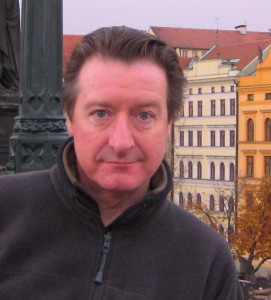
The feeling of me, the idea of me
“what began simply as a sensory experience has become part of my identity. It has come into my existence as a thing instead of a passing object of perception and experience”[1]
“first there’s me, then there’s mine, then there’s trouble”[2]
This June morning is sunny and warm. I’ve left my house and walked the 10 minutes or so to the beach. I take my sandals off and I can feel the sand beneath my feet, hundreds of particles of sand rubbing into my toes. The surf comes and goes; it’s cool and as I walk into the water it refreshes my feet and ankles. The horizon seems vast and cloudless. I can smell the salty air. I stand still and allow my attention to gently focus on my senses: touch, taste, smell, sight, sound. Standing still I can also bring my attention to the feeling of me, the sensations inside me, the feeling of being, sensations which, like the surf itself relentlessly come and go, as if they belong to something vaster. The feeling of me.
This feeling of me feels connected, embodied, energetic and free. It feels open and untroubled. Phenomena comes and goes and it always will. There is a sense of dynamic movement within me, yet a feeling of being grounded, connected.
Then something else happens. I begin to-in a flash-get an idea about this feeling of me. I reflect on my experience, ask myself some questions such as “what’s this about?” or make a statement such as “this feels good” and wonder how I might have the good feeling again. I begin to label my experience, attempting to capture or package the feeling of me.
Something’s happened. The feeling of me has turned into an idea of me. The surf, the sensations of being have paused, frozen into concept.
This is, perhaps the way it happens. As soon as I switch to the idea of me, I compare my experience, place it in a category that helps explain the feeling of me. It’s almost as if my mind or my brain wants to predict or classify my experience and base it on past experience. Why would I want to do this? Now I’m becoming identified with this idea of me-and what might be mine.
This takes around a second, or less.
I experience the embodied, sensory me. There then is an involuntary (where does it come from?) need to conceptualise this, to anchor it by comparing it to previous experiences. I reify the experience as mine, and grasp, attach, fuse to this as idea and identity. This is me. This is my story, my narrative, mine. Its happening, though I’m not sure exactly what it is that is happening. But it is me, mine, and I’ll defend it as such. This way I am real, solid; I have an identity, I’m somebody and I will spend much of my time fused to this and justifying this somebody.
This idea of me, I begin to notice, occurs with more frequency as I grow and experience bad things. I actually appear to have a bias in my ideas towards negative experiences, they really mean something to me and I can recall them with a vividness that simply is not present around good experiences. They tell me that the world can be bad-and they tell me to be careful. They also tell me that I can-am-bad and should be ashamed to be like this. I seem to prefer these stories about being bad so cling on to them, sort of identify with them as me, mine.
I don’t really have a very satisfying, happy life, I seem to have taken the feeling of me, with all of its life and liberty and turned it into an idea of me, filled with dead concepts; am I this, this cognitive prison camp? I’ve taken my pain and turned it into a huge story of suffering: I am my suffering.
Is there no way out?
I turn my attention to the suffering self with kindness, as if I could hold this suffering in a sense of compassionate embrace; I see it with eyes wide open and try to wholeheartedly befriend it. I fail. I try again-are we not all like this in one way or another? I take my attention to the feeling of me, where I am, standing on the beach. For a moment or two the idea of me disappears (where does it go to?) and I am immersed in the embodied sensation of not me, but just this, just this. I suddenly realise that my suffering vanished (where did it go?) as if it was never real.
Then something else happens. I begin to-in a flash-get an idea about this feeling of me. I reflect on my experience, ask myself some questions such as “what’s this about” or make a statement such as “this feels good” and wonder how I might have the good feeling again. I begin to label my experience, attempting to capture or package the feeling of me.
Something’s happened. The feeling of me has turned into an idea of me. The surf, the sensations of being have paused, frozen into concept.
And so, the cycle continues.
Yet every time I bring my attention to this, gently and with a mindful, compassionate embrace the grasping, the fusion, weakens slightly, the story of suffering is not the only story; in fact, the story is replaced by the feeling of just being, a “seeing from the heart”[3].
And so, the cycle continues. Yet in kindly facing, rather than ignoring, my habit of creating and defending an idea of me and mine, perhaps here lies some kind of mindful liberation.
[1] Rob Nairn, Choden, & Heather Regan Addis From Mindfulness to Insight
[2] Akong Rinpoche
[3] Rob Nairn, Choden, & Heather Regan Addis From Mindfulness to Insight





Write a Comment